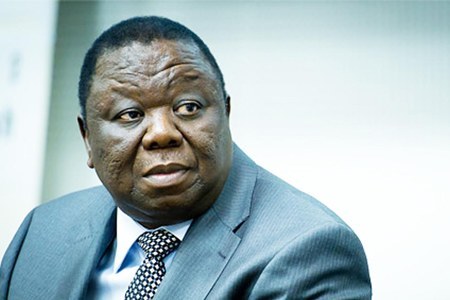
With many people having got over the fact that Robert Mugabe will be president of the republic for the next five years, there is a growing chorus to the tune that Morgan Tsvangirai, after 14 years at the helm, must now step down as leader to allow the party to rejuvenate. SUNDAYOPINION BY SOLOMON MWAPANGIDZA
While it is conceivable that Tsvangirai can still beat any Zanu PF candidate in a free and fair 2018 election, few can imagine the playing field getting any better under Zanu PF rule. The time of the inclusive government provided the best opportunity there ever was for electoral reforms. With no voice in parliament, Tsvangirai is totally emasculated.
In light of this and other frailties associated with Tsvangirai, the easy path seems to be to agitate for his stepping down.
But the easy path is not necessarily the best path. To begin with, Tsvangirai’s stepping down is on itself no guarantee that Zanu PF will abandon its culture of impunity.
Those who say Tsvangirai must step down because of his personal blemishes in both his private and public lives conveniently forget that Tsvangirai has never been the best candidate for president in the first place. The sole reason he has remained at the helm is his charisma. Charisma, by its very nature, does not always conform to logic. Charismatic leadership is not based on academic achievements or any moral high standing. A charismatic leader is catapulted to prominence by a grand act that he performs that endears him to the masses. In Tsvangirai’s case, that act was the calling of mass demonstrations during his ZCTU days.
Charismatic organisations — and the MDC-T is one — are built around the personality of an individual, and that is their major line of weakness. Usually such organisations do not span beyond the life of the charismatic leader for two vital reasons. The first is that charisma is not transferable; the popularity is not of the organisation, but of the individual leader, which explains why the MDC has continued to be dwarfed by the MDC-T, even as it boasts the stewardship of two successive professors. The second is that the charismatic leader is dogged by his followers’ unremitting demand that he renew his credentials, and this usually happens during difficult moments for the organisation, when the organisations’ relevance or reason for existence is called into serious question, as in the case of resounding defeat in the case of a political party. The followers will demand, “Show us! Show us why we should continue believing in you. We want a ‘sign’!”
Such pressures usually lead the charismatic leader into performing a “grand” act that flops, bringing much embarrassment, disenchantment and more doubting Thomases and, in the case of political parties, splits. Zimbabweans will remember the infamous Final Push, and how it proved to be a portent of the split of the original MDC.
Leadership renewal for the MDC-T is thus more than just a matter of Tsvangirai stepping down and Tendai Biti or Nelson Chamisa taking over. Some have argued passionately that Tsvangirai must step down to save the party, and others, with equal passion, contend that he should stay to save the party. It is not for me to give prescriptions, but there is a real possibility that the MDC-T could disintegrate with the departure of Tsvangirai and the plethora of parties that will mushroom thereafter will only serve to further divide and weaken the opposition base, thereby strengthening the ruling party.
- Chamisa under fire over US$120K donation
- Mavhunga puts DeMbare into Chibuku quarterfinals
- Pension funds bet on Cabora Bassa oilfields
- Councils defy govt fire tender directive
Keep Reading
So, then, must Tsvangirai stay? My answer is no. Not when his only option is to contest elections in an uneven playing field and lose them and wait for the next election to lose it again. Zimbabweans have lives to live, lives too short to be wasted waiting for pointless elections! Of course Tsvangirai will argue that he has never lost an election; he has been cheated. Well, defeat, fair or foul, remains defeat and playing the victim every time is not the best way to inspire confidence and fight apathy. Which is the major reason he should step down, that in any future election he might contest he will have two formidable foes to deal with — Zanu PF and apathy. A new leader might get the benefit of the doubt from the electorate, after all Zimbabweans are an optimistic lot; they will wilfully suspend disbelief and hope that the new leader might just snatch it, and that when that happens, the new leader will not enter any inclusive deal in which he will be a ceremonial figure unable to influence any meaningful reforms.
The best bet for the MDC-T is to persuade Tsvangirai to step down, not to boot him out. Tsvangirai would not want to go in humiliation and his last kicks could mark the end of MDC-T’s dominance in opposition politics.











